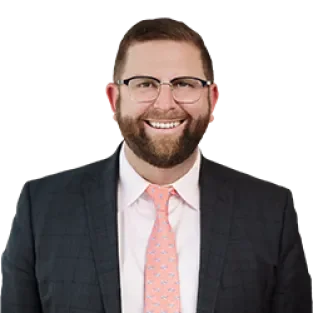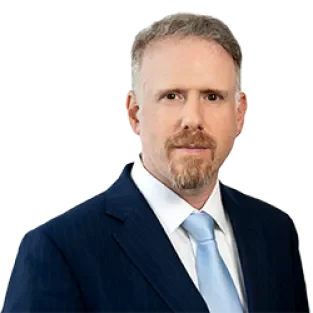ASAP
New York Legislature Seeks to Limit Employers’ Right to Speak on Union Matters
UPDATE: On September 6, 2023, Governor Hochul signed New York Senate Bill S4982 / Assembly Bill 6604 into law.
* * *
The New York Legislature took action at the end of the 2023 session to prohibit mandatory employer meetings on “religious or political matters,” passing Senate Bill S4982 / Assembly Bill 6604 on June 10. If signed into law, the bill would create a right for employees to refuse to attend employer-sponsored events and to refuse to listen to communications regarding the employer’s opinion on religious or political matters. The bill was backed by labor unions seeking to limit employers’ right to hold such meetings during union election campaigns. The same groups are now urging Governor Hochul to sign the bill into law.
“Religious Matters” Defined
The bill defines religious matters as “matters relating to religious affiliation and practice and the decision to join or support any religious organization or association.”
“Political Matters” Defined
The bill defines political matters as “matters relating to elections for political office, political parties, legislation, regulation and the decision to join or support any political party or political, civic, community, fraternal or labor organization.” This expansive definition would cover a wide range of employer speech, severely restricting employers’ ability to communicate with their workforce.
By including the decision to join or support a union as a “political matter,” the bill would prohibit mandatory employer meetings about union campaigns and permit employees to refuse to “listen to speech or view communications” by an employer about the decision to join or support a union. If enacted, this bill could significantly restrict an employers’ ability to communicate with employees.
Employees Protected for Refusal to Attend “Employer-Sponsored Events” or “Listen to Speech or View Communications”
The bill would amend Section 201-d of the NY Labor Law to protect employees from discrimination or retaliation for refusing to attend a meeting held by the employer or designee for the “primary purpose” of communicating the employer's opinion concerning religious or political matters. Employees who attend but refuse to “listen to speech or view communications” at such a meeting would be similarly protected.
Posting Required
Employers would be required to post a notice “in every workplace” to inform employees of their rights under Section 201-d. This posting requirement would include both the restrictions on political and religious matters and presumably other protected activities under Section 201-d, including the legal use of cannabis. (See NYSDOL Publication P420.) We anticipate that if the bill is enacted, the state will develop and publish a form of notice for employers to use, but no such form is available yet.
Exemptions and Limitations
Religious and Educational Entities: The bill would exempt religious entities or educational institutions that are exempted from Title VII with respect to the restrictions on religious speech. Higher educational institutions are also specifically permitted to communicate regarding academic programs or coursework.
Managerial and Supervisory Employees: The bill would permit employers to continue to communicate with managers and supervisors without hindrance because “requirements limited to the employer’s managerial and supervisory employees” would be exempted from all Section 201-d restrictions.
Communications Required by Law and Information Necessary to Perform Work: The bill would permit employers to provide communications required by law. Employers would be permitted to communicate “information that is necessary for such employees to perform work.” No further specifics are provided about this exception.
Casual Conversations: The bill would exempt “casual conversations between employees or between an employee and agent, representative or designee or an employer.” The bill provides such exemption would apply only to the extent that “participation in such conversations is not required,” but provides no other guidance in this regard.
Enforcement and Remedies
This bill would be subject to the existing enforcement structure applicable to Section 201-d of the Labor Law. That statutory scheme expressly authorizes civil actions by individuals as well as enforcement by the New York Attorney General. Further, under Section 215 of the Labor Law the protections added to the section by this bill could be enforced by the State Department of Labor or through an employee’s civil suit.
Latest Efforts to Limit Mandatory Employer-Sponsored Meetings
This bill follows efforts by labor groups at the national level and other states to ban or restrict employer-sponsored meetings. At the state level, these laws have been challenged under constitutional and federal preemption grounds, and such challenges are ongoing. At the federal level, NLRB General Counsel Jennifer Abruzzo has pressed forward to interpret the National Labor Relations Act as prohibiting such meetings despite similar ongoing legal challenges.
Employers that are considering mandatory employee meetings in the face of a union organization effort should consult with labor and employment counsel regarding associated limits and risks.
Effective Immediately upon Signature
This bill will be delivered to Governor Hochul at some point before the end of the year, and we expect that she will then have 10 business days to sign or veto this bill. The new law would be effective immediately upon her signature. It is not known when the bill will be delivered to the governor for action. Littler will continue to monitor this bill for any developments.
Given the potentially significant impact of this bill, employers are strongly encouraged to consult with labor and employment counsel in order to make necessary plans before its adoption.



